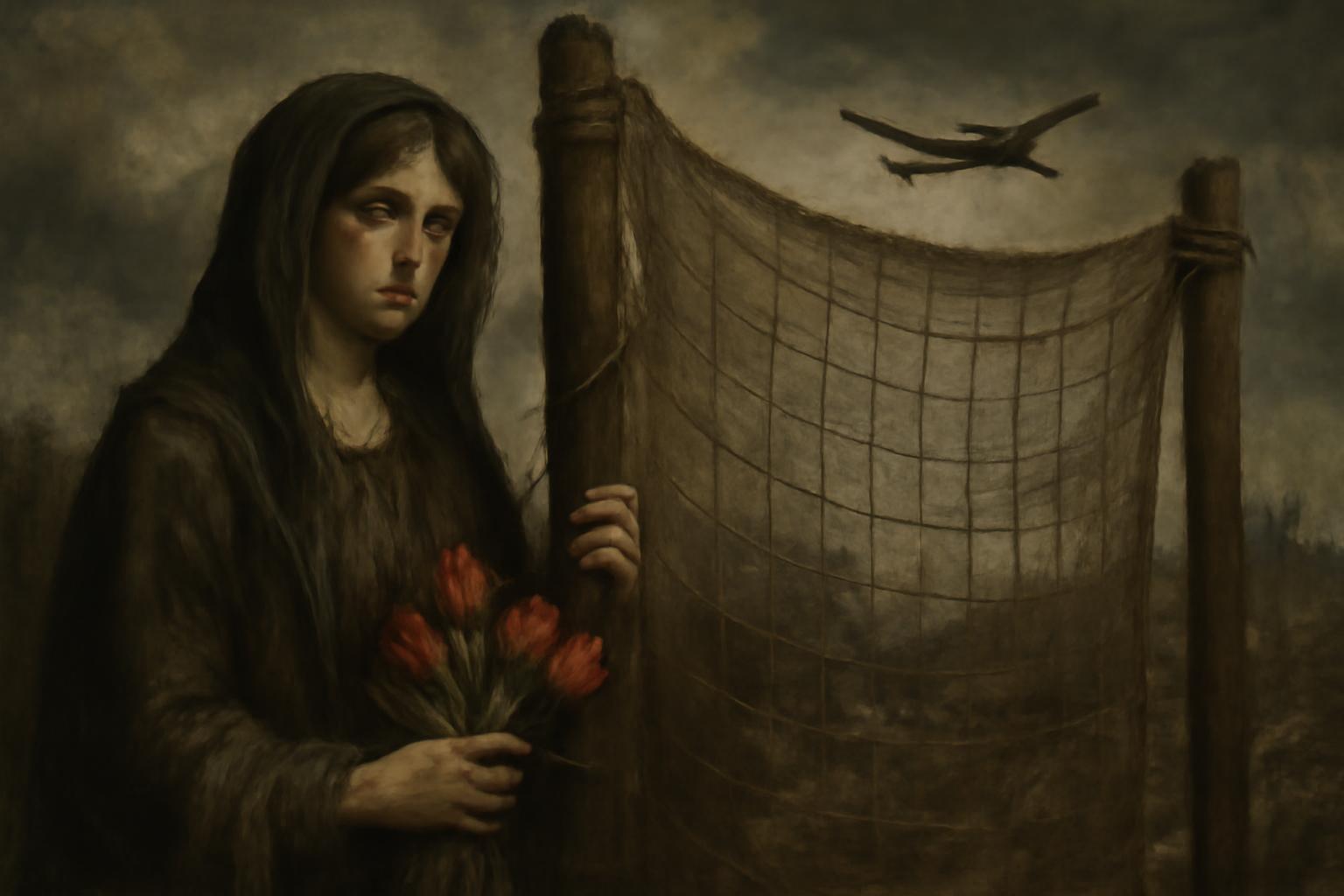Imagine, if you will, the windswept steppes of Ukraine, vibrating under the mechanical locust-swarm of drones—Prometheus’s fire now refashioned into death from above, unleashed not by gods but by the very mediocrity of man’s post-Enlightenment ingenuity. In this theater, men and women, stripped of certainty and shivering in mortified awe, scrawl their prayers into the scorched mud. Into this tableau, grotesquely, tiptoe the tatters of Dutch tulip-farming—the blackened, gossamer remains of horticultural appetite, repurposed into a makeshift aegis against the unremitting violence of technology.
What irony, what inverted Arcadia: the gentle nets that once cradled bulbs in spring soils, supporters of beauty and anticipation—the grace of Persephone’s return, you might say—now dragging down drones like Icarus from their lethal flights. The earth’s oldest mythological gestures (the festival, the harvest, the binding net) are co-opted to stem the hemorrhage of twenty-first-century blood. Dutch volunteers, driven less by belief in Progress and more, perhaps, by a bitter awareness of cultural dissolution, hasten their “Heavenshields” eastward, as if to shore up civilization’s last redoubts with remnants of last year’s bloom, mere detritus against the abyss.
Yet, what is this but a thin salve for festering wounds? How Nietzsche would sneer! Having killed God and with him all transcendent measure, we patch the void with agricultural leftovers, the refuse of beauty harnessed for survival. Oedipus, blind and exiled, could not limp so far from tragedy as we have: here, the chorus is mechanized, death is anonymous, and salvation, if it comes, wears the mask of the provisional and the absurd. These nets, tangled in agony and hope, briefly arrest the machinery of destruction—and we count the lives saved with the joyless gratitude of the condemned man reprieved for one more winter.
Thus, by these acts we are reminded: the West, once steeped in the tragic grandeur of kings and fate, reduces its defense to the accumulation of garbage and the fragile will of good men. The peal of decline rings louder: a civilization incapable of answering its own collapse but by patchwork, nostalgia, and the recasting of farm implements as armor. We are interred alive, as Nietzsche prophesied, by the exhaustion of our own inventive power, forced to recycle yesterday’s blossoms as tomorrow’s bulwarks.
This, then, is the final farce: the world’s sublime inheritance, bartered away for tulip nets, for the mere postponement of mourning. The tragic hum that once animated Homer and Aeschylus is now muffled, almost unheard, beneath the droning whine of the synthetic and the disposable.
